Filter by

Contesting ‘Race’ and Sport: Shaming the Colour Line
In the decade since Kevin Hylton’s seminal book ‘Race’ and Sport: Critical Race Theory was published, racialised issues have remained at the forefront of sport and leisure studies. In this important new book, Hylton draws on original research in contemporary contexts, from sport coaching to cyberspace, to show once again that Critical Race Theory is an insightful and productive tool for i…
- Edition
- 1
- ISBN/ISSN
- 1317504119, 9781317504115
- Collation
- -
- Series Title
- -
- Call Number
- 796
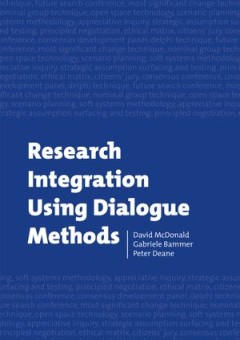
Research Integration Using Dialogue Methods
Research on real-world problems—like restoration of wetlands, the needs of the elderly, effective disaster response and the future of the airline industry—requires expert knowledge from a range of disciplines, as well as from stakeholders affected by the problem and those in a position to do something about it. This book charts new territory in taking a systematic approach to research integ…
- Edition
- -
- ISBN/ISSN
- 9781921536755
- Collation
- -
- Series Title
- -
- Call Number
- 001.4 MCD r
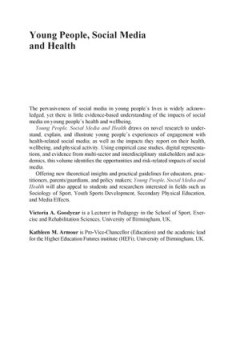
Young People, Social Media and Health
The pervasiveness of social media in young people’s lives is widely acknowledged, yet there is little evidence-based understanding of the impacts of social media on young people’s health and wellbeing. Young People, Social Media and Health draws on novel research to understand, explain, and illustrate young people’s experiences of engagement with health-related social media; as well as th…
- Edition
- -
- ISBN/ISSN
- 9781138493957
- Collation
- -
- Series Title
- -
- Call Number
- 796
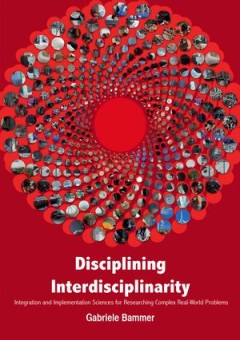
Disciplining Interdisciplinarity: Integration and Implementation Sciences for…
This book provides collaborative research teams with a systematic approach for addressing complex real-world problems like widespread poverty, global
- Edition
- -
- ISBN/ISSN
- 9781922144270
- Collation
- -
- Series Title
- -
- Call Number
- 001.4 BAM d
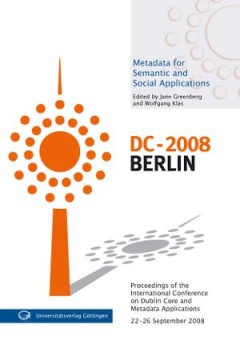
Metadata for semantic and social applicationsDC- 2008 Berlin - Proceedings of…
Metadata is a key aspect of our evolving infrastructure for information management, social computing, and scientific collaboration. DC-2008 will focus on metadata challenges, solutions, and innovation in initiatives and activities underlying semantic and social applications. Metadata is part of the fabric of social computing, which includes the use of wikis, blogs, and tagging for collaboration…
- Edition
- -
- ISBN/ISSN
- 9783940344496
- Collation
- -
- Series Title
- -
- Call Number
- 005.74 GRE m
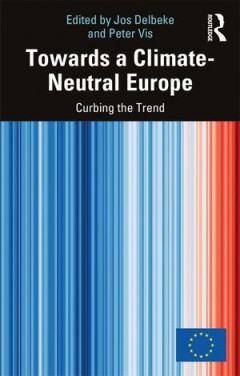
Towards a Climate-Neutral Europe Curbing the Trend
This book explains the EU’s climate policies in an accessible way, to demonstrate the step-by-step approach that has been used to develop these policies, and the ways in which they have been tested and further improved in the light of experience. The latest changes to the legislation are fully explained throughout. The chapters throughout this volume show that no single policy instrument can …
- Edition
- -
- ISBN/ISSN
- 9781000750713, 100075071X
- Collation
- -
- Series Title
- -
- Call Number
- -
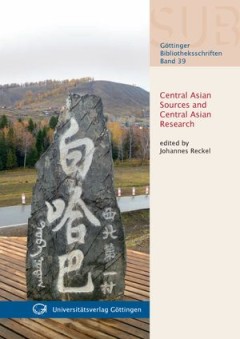
Central Asian Sources and Central Asian Research - Selected Proceedings from …
In October 2014 about thirty scholars from Asia and Europe came together for a conference to discuss different kinds of sources for the research on Central Asia. From museum collections and ancient manuscripts to modern newspapers and pulp fiction and the wind horses flying against the blue sky of Mongolia there was a wide range of topics. Modern data processing and data management and the prob…
- Edition
- -
- ISBN/ISSN
- 9783863952723
- Collation
- -
- Series Title
- -
- Call Number
- 060
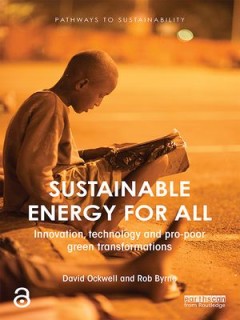
Sustainable Energy for All Innovation, technology and pro-poor green transfo…
Despite decades of effort and billions of dollars spent, two thirds of people in sub-Saharan Africa still lack access to electricity, a vital pre-cursor to economic development and poverty reduction. Ambitious international policy commitments seek to address this, but scholarship has failed to keep pace with policy ambitions, lacking both the empirical basis and the theoretical perspective to i…
- Edition
- -
- ISBN/ISSN
- 9781317220510, 131722051X
- Collation
- -
- Series Title
- -
- Call Number
- -

The Work of Professional Football
A long-term study providing rare insights into the precarious career and ordinary working culture of professional footballers. Away from the celebrity-obsessed media gaze, the work of a professional footballer is rarely glamorous and for most players a career in football is insecure and short-lived. A former professional, Martin Roderick’s familiarity with the world of football is the foundat…
- Edition
- -
- ISBN/ISSN
- 9780203014950
- Collation
- -
- Series Title
- -
- Call Number
- 796
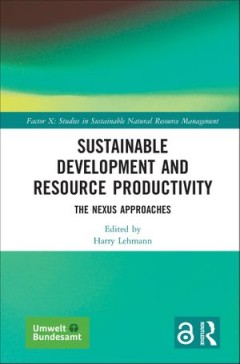
Sustainable Development and Resource Productivity The Nexus Approaches
The fourth Factor X publication from the German Environment Agency (Umweltbundesamt, UBA), Sustainable Development and Resource Productivity: The Nexus Approaches explores the interdependencies of sustainable development paths and associated resource requirements, describing and analysing the necessities for a more resource efficient world.The use of and competition for increasingly scarce reso…
- Edition
- -
- ISBN/ISSN
- 1000213749, 9781000213744
- Collation
- -
- Series Title
- -
- Call Number
- -
 Computer Science, Information & General Works
Computer Science, Information & General Works  Philosophy & Psychology
Philosophy & Psychology  Religion
Religion  Social Sciences
Social Sciences  Language
Language  Pure Science
Pure Science  Applied Sciences
Applied Sciences  Art & Recreation
Art & Recreation  Literature
Literature  History & Geography
History & Geography